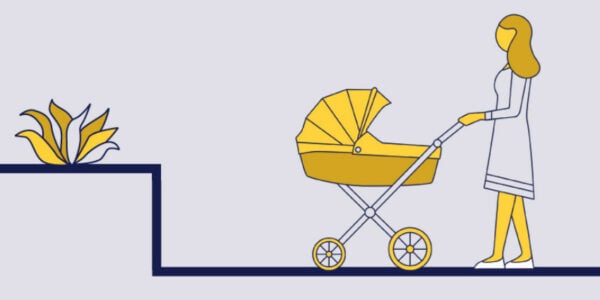Blog – The Community of Practice discusses recurrent care proceedings
About this blog
Nuffield Family Justice Observatory’s recently published research on recurrent care proceedings, carried out by the Family Justice Data Partnership – a collaboration between Lancaster University and Swansea University – revealed that mothers in England and Wales who appear in a first set of care proceedings still have the same probability of returning to court for subsequent (recurrent) proceedings as they did when earlier benchmark studies were carried out.
The report notes that a range of intensive, therapeutic preventative services have been developed to meet the needs of parents who have experienced recurrent care proceedings and evaluations show these have made a difference. However, there are relatively few such services available, access to them is unevenly spread, some have closed due to insufficient funding or budget cuts and many have small teams providing support to only a limited number of women and men. The researchers comment that that the level of support available is insufficient to meet the need.
We will be publishing four blogs in response to the latest research findings and the recommendations in the report.
This blog is written by members of the Supporting Parents Community of Practice. This is an online Community of Practice for services in England and Wales providing support and help to women and men who have experienced recurrent care proceedings. In this blog the CoP members describe the challenges their services face and welcome the researchers’ calls for universal entitlement to support following the first removal of a child, for better information at a local and national level on the prevalence of recurrence, and for more evaluation of services.
We welcome the findings contained in the recently published report on mothers in recurrent care proceedings (Mothers in recurrent care proceedings: New evidence for England and Wales). We are obviously concerned that nationally the risk for women experiencing further care proceedings with a different child has not reduced since earlier research findings first established this problem, but we fully support the recommendations made and the conclusions that the researchers have drawn from their findings.
We all work in services across England and Wales that provide support and help to mothers who have experienced recurrent care proceedings. We know that our services are effective in breaking the cycle of recurrent proceedings, but we also know that the majority of our services are small scale, many of them have been set up recently and that there are still many areas of England and Wales without any recurrent services at all.
We feel that overall across children’s social care and health there hasn’t been a strong enough shift of thinking so that services like ours are seen as an essential part of the provision for vulnerable children and families. Too often our existence is reliant on one or two individual champions in an area which can leave us vulnerable once champions move on.
Insufficient attention is paid to possibilities for growth and development because energies are spent on ensuring we can just keep going. In the same way it is hard for us as small organisations to find the funds for much needed evaluations of our services which can demonstrate our impact and value for money. For some of us such evaluations have only been set up because of existing relationships with academics who are willing to carry out evaluations for little or no payment because they are committed to the work we do. We are also aware that the size and reach of our service bears little relation to the extent of care proceedings in our areas.
The services we work for are all very different: some of us work only with mothers, some with both mothers and fathers; some of us only take referrals after at least one child has already been removed through care proceedings and for some of us referrals only come after a mother has experienced several of her children being removed; some of us work with mothers during pregnancy, or during care proceedings and some only work with parents who do not have children with them; some of us are independent of the local authority while some of us are based in family support services or in other parts of children’s social care. Despite these differences we all share a trauma informed, relationship-based way of working. Our services are examples of the new ways of working recommended in the Independent Review of Children’s Social Care. The very nature of the work we do requires small caseloads, flexibility of approach, persistence, and time to build trust and relationships.
We are very aware of the pressures across the system arising from austerity that have a negative impact on families and on the frontline services working with them. We know that our social work colleagues are struggling with very high caseloads, which makes it much harder for them to provide the level of support families need and to work in a trauma
informed, relationship-based way. This makes it unsurprising that the number of families involved in care proceedings continues to rise. We are aware too of the pressure on health services, including mental health, midwifery and sexual health services. All of these pressures increase the need for services such as ours.
We all have a high number of care leavers on our caseloads, indicating a need for much greater attention to earlier work with care leavers that addresses their experiences of trauma and loss and prepares them better for parenthood. The cycle of care leavers going on to have their own babies removed into care is a particularly depressing one and raises questions about the corporate parenting role of local authorities. Overall we would like to be able to begin our work with women at a much earlier stage.
We are also aware of the need for more recurrent services for fathers and for services able to work with women and their male partners. Further work needs to be done too to ensure that our recurrent care services pay careful attention to any issues of disproportionality in our areas and ensure that through the referrals we receive we do not inadvertently increase these problems.
We share the researchers’ call for a universal entitlement to support following first removal, for better information at a local and national level about the prevalence of recurrence and for more evaluation of services.
Date: 08 Dec 2022 |
Topic
Topic






